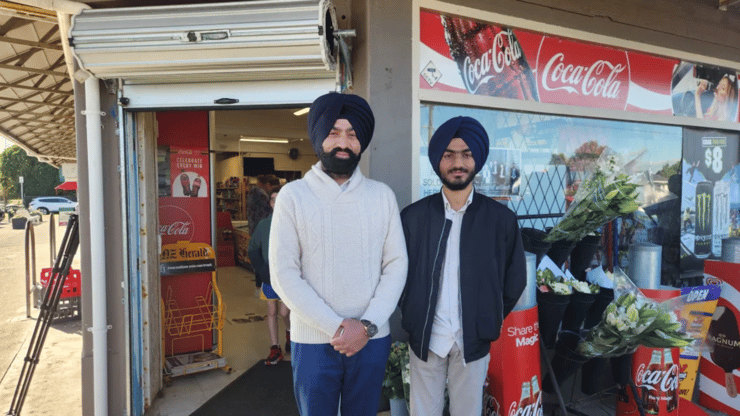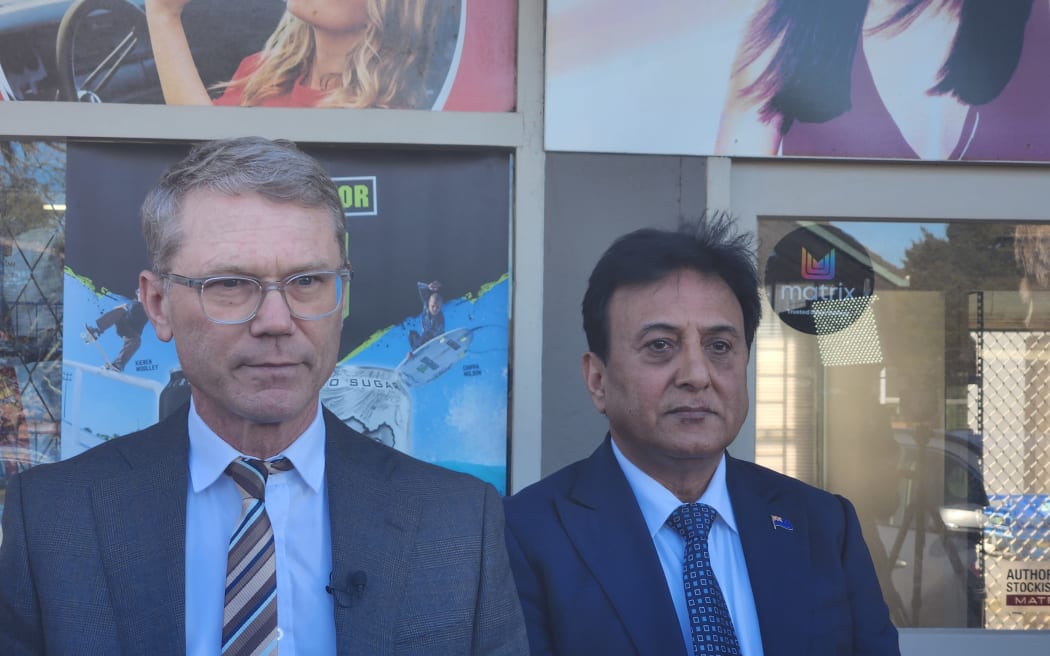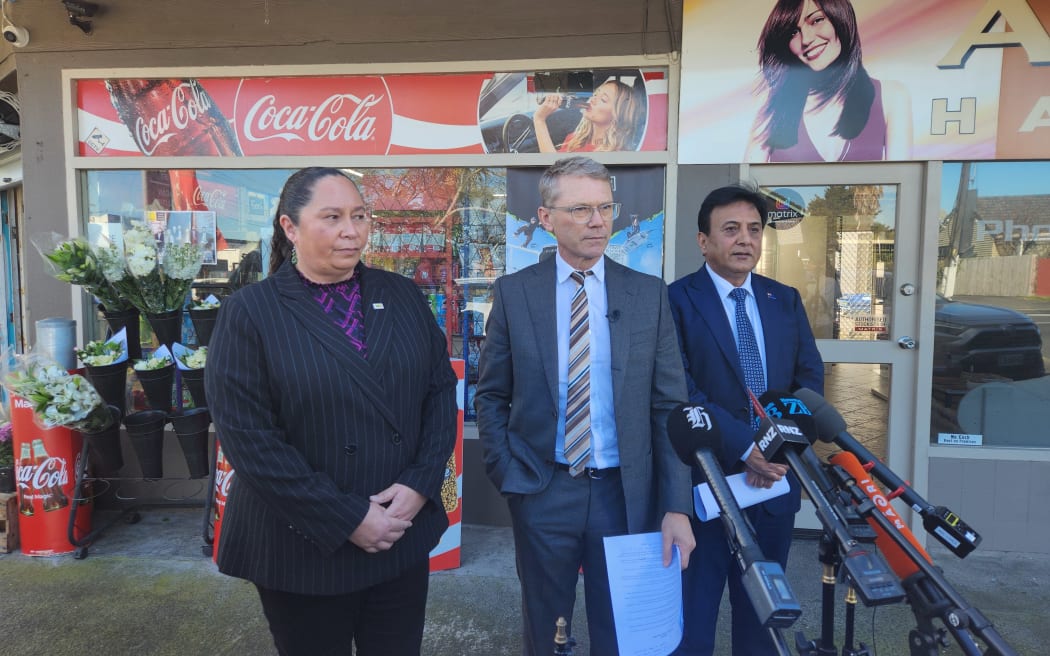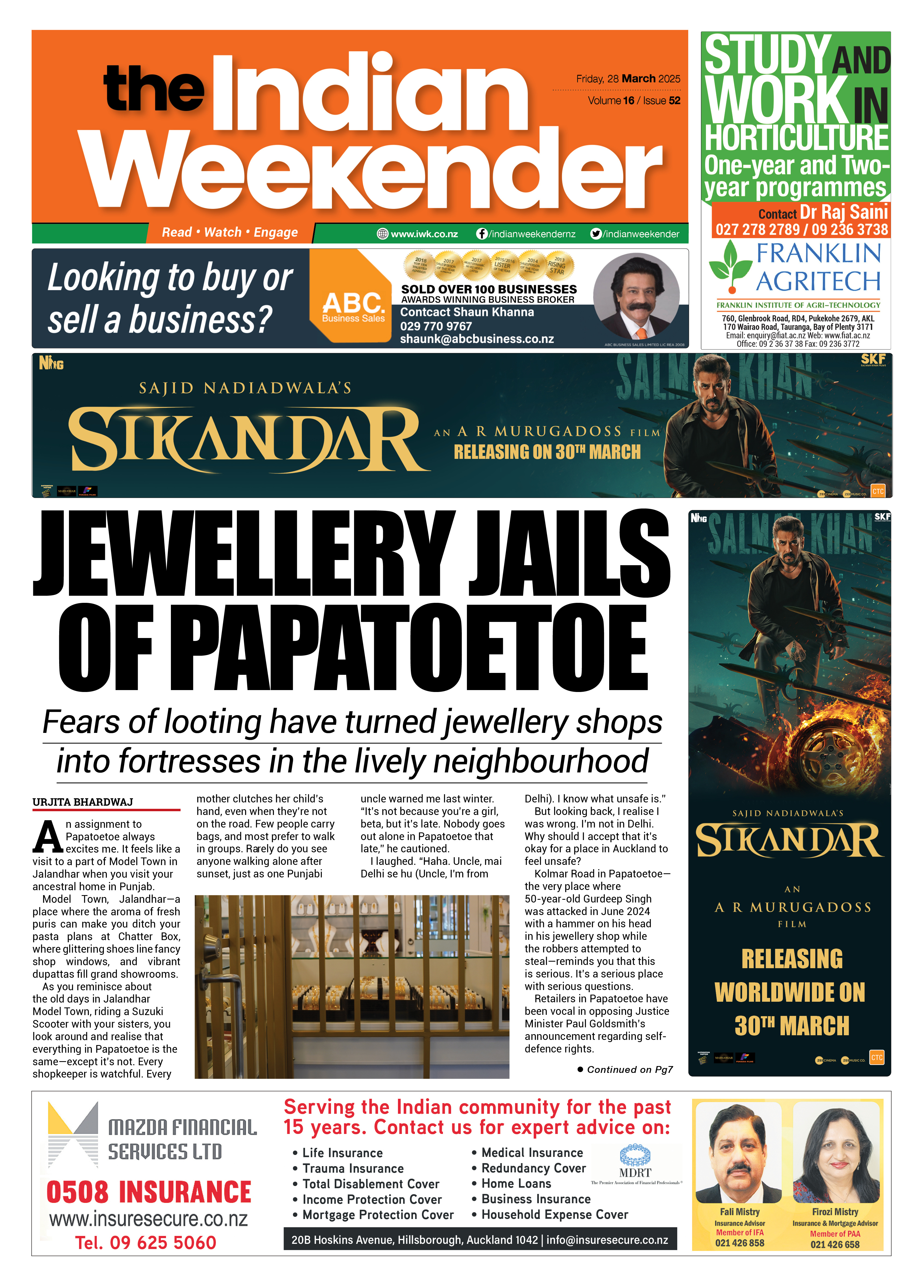Retail Crime Advisory Group Must Talk To Local Businesses: Victims

Dairy owners in Auckland say the priority for the government's new retail crime advisory group should be to talk to business owners.
Ministers on Thursday announced a new advisory group on retail crime and they have already appointed Dairy & Business Owners Group chair and Crime Prevention Group president Sunny Kaushal to lead it.
A new Ministerial Advisory Group will engage with victims, workers, business owners, retail experts, and advocacy groups over the next two years, and come up with specific policy proposals for the government. Dairy & Business Owners Group chair and Crime Prevention Group president Sunny Kaushal has been appointed to lead the group and it will have about six other members.
Rajbir Singh and his father, Sukhdeep, run a dairy in on Marua Road in Ellerslie.
They have been ram-raided twice, and Rajbir Singh said the advisory group must engage with the community.
"The first priority should be talking to the public, talking to dairy owners, and talking to local businesses in general," he said.
"A lot of people have lost sight of the fact that it's not just the dairy owners and the business owners that are impacted by robberies, it's the surrounding community as well."
Singh said safety in Auckland was not what it used to be.
"We've seen a lot of crime over the years, especially in recent years," he said.
"Ten years ago we used to have minimal crime, and a robbery wouldn't even be an aggravated robbery."
Singh said in previous robberies, they would only lose about $100, but now, they have lost thousands in ram raids.
"It's nice to see, now, that we are seeing some change, although, of course, we wish we'd seen it a bit sooner," Singh said.
He said the group allowed more direct involvement for businesses, and for the public to have their say, and make meaningful change in reducing crime.

Justice Minister Paul Goldsmith and Dairy & Business Owners Group chair and Crime Prevention Group president Sunny Kaushal who has just been appointed to chair the new advisory group on retail crime. Photo: RNZ / Finn Blackwell
Justice Minister seeking detailed, ready to legislate policies
Justice Minister Paul Goldsmith told Checkpoint the voices of victims had not been heard enough when it came to developing policies to address retail crime.
Goldsmith said he wanted the group to present detailed policy that was well-considered, thought through, and ready to legislate.
There had been an increase in the number of cases where people left shops with items without paying for them and that was not sustainable for businesses, he said.
"We're seeing more and more cases in supermarkets of people just walking out with stuff, walking out of places and the businesses are not clear about what they can and can't do to restrain people for example."
There needed to be more clarity about whether security guards could restrain people in these situations rather than being forced to just let them walk away, Goldsmith said.
"We certainly don't want people taking the law into their own hands but what's not clear is what is an appropriate response to restrain somebody who's trying to walk away ... with something they haven't paid for," he said.
"I don't think it's a sustainable situation where people can just walk out of shops without paying and the response has to be we'll just do nothing and just let it happen because that has been happening and it's getting worse and worse."
Goldsmith said he wanted to hear suggestions from the advisory group about how to curb the massive increase in retail crime.

From left Associate Justice Minister Nicole McKee, Justice Minister Paul Goldsmith and Sunny Kaushal who has just been appointed as chair of the new advisory group on retail crime. Photo: RNZ / Finn Blackwell
Labour says 'two-year talkfest' will not address crime
Labour justice spokesperson Duncan Webb said setting up a Ministerial Advisory Group was not an urgent solution to an urgent problem.
"That $3.6 million could be spent on crime prevention, supporting victims, rehabilitation and stopping reoffending right now."
Webb told RNZ a "two-year talkfest" would not address crime and "real solutions" were needed.
"My concern is about who is going to be on that panel, and whether they're going to be essentially linked in with the evidence about how to address crime.
"We think we need to stop playing politics with this and start using evidence-based methods that worked."
He acknowledged Kaushal's criticism of the previous Labour government, but said Kaushal had also been critical of this government too.
"The whole National Party narrative around crime is to stir up fear and to really divide communities. We are happy to work together on an evidence-based approach, working with the National Party and anyone else who wants to come along, to have some solutions that stick rather than every time a government changes, having the needle switch from one way to another."
He said the voices of the community and victims were important, but proven interventions needed to be considered too.





